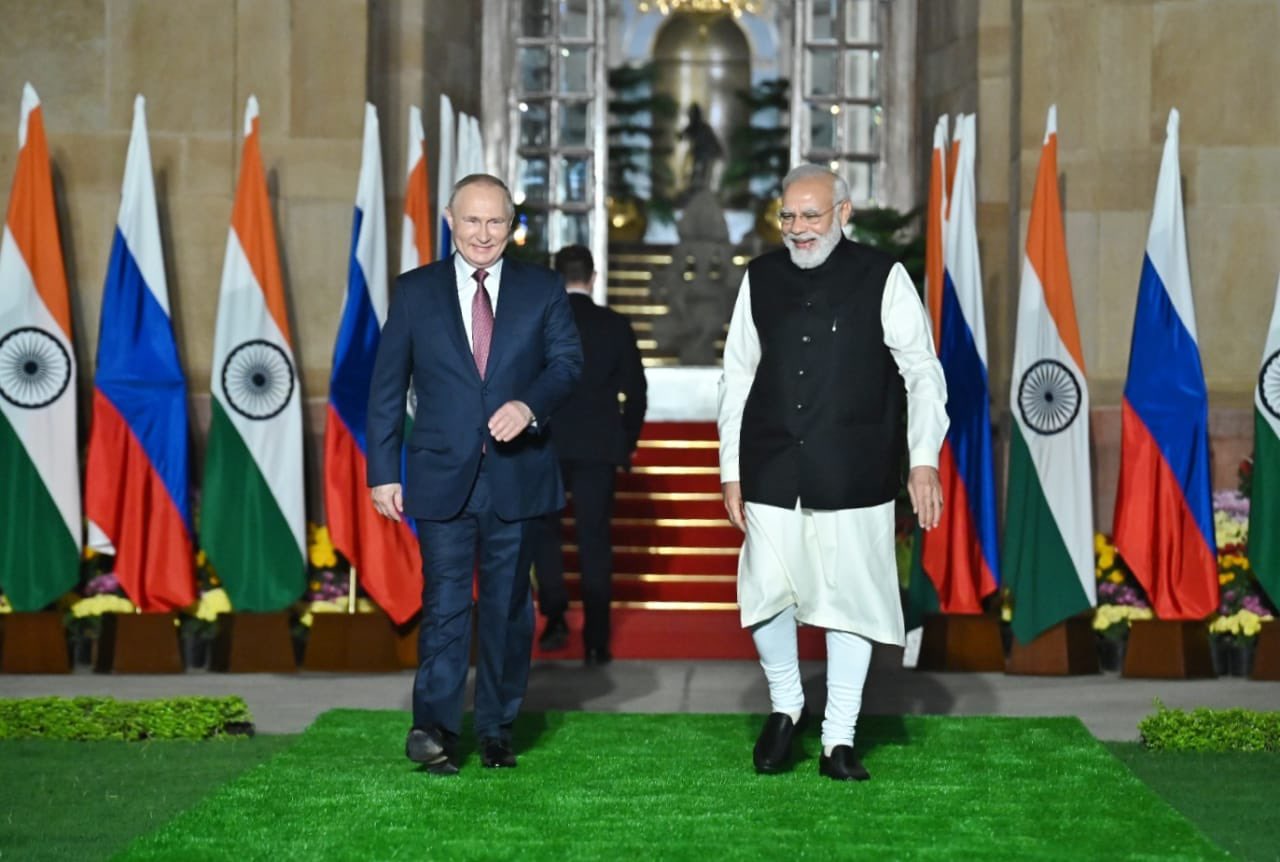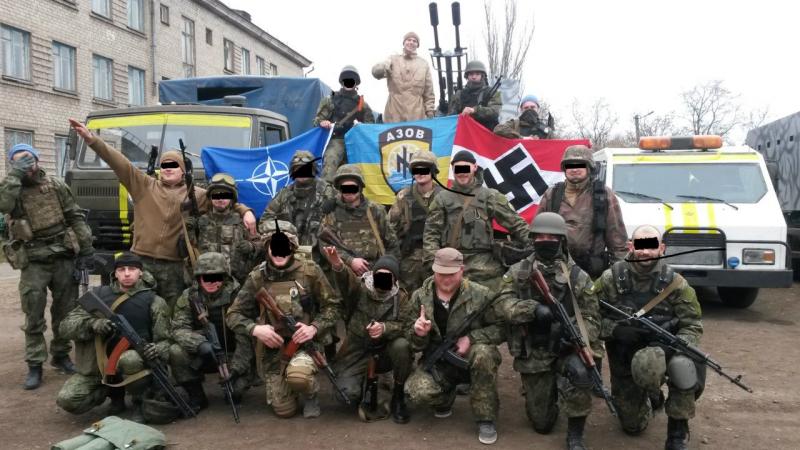As the Russian military operation in Ukraine intensifies, media on both sides has been accused of spreading propaganda and false information to malign the other. While Russian disenchantment with Ukrainian and Western media is not unusual, its disappointment with Indian media, thrice in over two months, has raised eyebrows.
S-400 Deal: Will US Sanctions On Russia Impact India’s Missile Defense Procurement? Moscow’s Envoy To Delhi Clears The Air
However, The Russian Embassy has said that the Indian media should provide truthful and objective information to their citizens regarding the Ukraine crisis.
“Russia has not waged war against Ukraine and its people, but has undertaken a special military operation with the purpose of ending Nazism as well as demilitarization in Ukraine,” the Russian embassy stated in a statement.
“The Russian military is exercising maximum restraint. It is not targeting civilians and cities. The Russian army is only targeting military bases. Our army does not use banned weapons like the Ukrainian army, nor does it advance people in the form of human shields. We also treat prisoners of war with respect,” the Russian embassy said.
In a tweet, the embassy said, “Russia has always been ready for dialogue. Nuclear bases are safe in Ukraine. This has also been confirmed by the IAEA. Any information to the contrary is biased and misleading,”

Indian media had earlier reported that the Russian military had taken control of the Chernobyl nuclear power station amid fears that Ukraine, supposedly backed by international powers, was working on developing nuclear weapons using Plutonium-239 found in the complex.
Moscow’s criticism of Indian media comes a few days after Russia said that it “highly appreciates” New Delhi’s position at the United Nations Security Council (UNSC) where it had abstained from voting on a resolution against Russia.
The Russian embassy had then stated that Moscow was determined to keep close engagement with New Delhi on the situation in Ukraine in the spirit of their special and privileged strategic alliance.
▫️Russia repeatedly initiated and indicated its readiness for dialogue and negotiations
▫️Nuclear sites in Ukraine are safe and secured as confirmed by the IAEA
Any information to the contrary is biased and misleading. https://t.co/EM4kW6oAgy
— Russia in India ?? (@RusEmbIndia) February 28, 2022
“Highly appreciate India’s independent and balanced position at the voting in the UNSC on February 25, 2022,” it had tweeted previously.
According to Roman Babushkin, Russia’s acting ambassador to India, New Delhi’s response to eastern Ukraine has been fully independent. “Russia welcomes India’s stand on Ukraine.
India, as a global power has at times, held a balanced and independent view on Ukraine. Both the countries have talked about the situation there many times at the bilateral and multilateral levels,” he told The Hindu on February 24.
It is pertinent to mention that India and Russia share a special relationship. When President Putin visited India in December last year, he seemed to have indicated that Moscow can handle the relationships with New Delhi and Beijing independent of each other. New Delhi and Moscow agreed to extend military and technical cooperation for another decade.

Repeated Attacks On Indian Media
The Russian embassy previously used social media to criticize Indian media for their coverage of the Ukraine crisis and the situation in Kazakhstan. The Indian media, according to the embassy, was giving a misleading picture of the situation in both countries, as previously reported by EurAsian Times.
Two days after the release of this statement, the embassy again took to social media, this time using the Russian Foreign Ministry’s Facebook account to criticize Indian media coverage of the Ukraine issue.
We noted some publications in the Indian press on developments in Kazakhstan & #Russia’s involvement in the joint CSTO peacekeeping operation there, & would like to elaborate on some important facts that have obviously slipped from the media’s attention ➡️ https://t.co/LG0NvIIJGJ pic.twitter.com/pIkP0fteUM
— Russia in India ?? (@RusEmbIndia) January 7, 2022
The post’s first paragraph read: With deep regret, we noted that some #Indian media have once again attempted to impose the distorted picture on the situation around the internal Ukrainian crisis and to turn upside down #Russia’s approaches on the matter, including by disseminating outrageous statements by the #Ukraine’s officials.”
The embassy had then underscored that Russia is not threatening anyone and is handling the matter with extreme caution. Moscow has stated in a statement that it has no intention of fighting the “fraternal Ukrainian people” or advocating for a military solution to the conflict.
Nitin J Ticku, a defense expert and Managing Editor of The EurAsian Times says India is playing its cards very well. Stuck between a wall and a hard place, the Indian government by abstaining from the UNGA vote is seen as supporting Russia while most of the media which often takes a pro-government stance is clearly supporting Ukraine and has not shied away from calling it a Russian invasion.
Less than two months later, the reports in Indian media about Russia planning an invasion have come true. However, Russia still maintains that it is just a special military operation aimed at eliminating the ultra-nationalist and neo-Nazi forces inside Ukraine and demilitarizing the entire country. In this quest, it has been attacking urban centers in Ukraine amid stiff resistance.

The Russian embassy’s statement has led to some analysts flagging it as an attempt to tell Indian media that the Russian version of events is the only coverage that they should carry. Equivalence has also been drawn with China which often registers its opposition to the media reports about its actions in the Taiwan Strait.
“The Russian Embassy has once again tried to convey to the Indian media like China that it has to be taken on the Russian side,” tweeted Tanvi Madan, Senior Fellow at The Brookings Institution.
China has also expressed displeasure with Indian media coverage of Taiwan on numerous occasions. “With regard to the alleged National Day of Taiwan,” the Chinese Embassy in India said in October 2020, “the Chinese Embassy in India would like to remind friends of the media that there is only one China in the world and that the Government of the People’s Republic of China represents the whole of China. We hope that the Indian media will take a stand in support of the government’s One China Policy. The One China policy should not be broken by the Indian media.”
Wolf-warrior diplomacy: After recently releasing "dos and don'ts" for the Taiwan National Day press coverage, China's embassy cautions Indian media to "grasp the highly sensitive nature" of Tibet-related issues and not use America's new Tibet law to "advocate" India's Tibet card.
— Brahma Chellaney (@Chellaney) December 31, 2020
“Taiwan cannot be shown as an independent nation or called the Republic of China, and its leader cannot be called the President,” the Chinese embassy stated.
Taiwan’s Foreign Minister Joseph Wu had tweeted in response to Beijing’s advisory to the Indian media. “India is the world’s largest democracy. Here the press is also free. Communist China wants to impose censors in India. Indian friends in Taiwan will have only one reaction — get lost.”
However, Russia shares a cordial relationship with India, unlike China, which remains marred in a protracted border conflict with the South Asian nation.
- Contact the author at sakshi.tiwari9555@gmail.com
- Follow EurAsian Times on Google News




